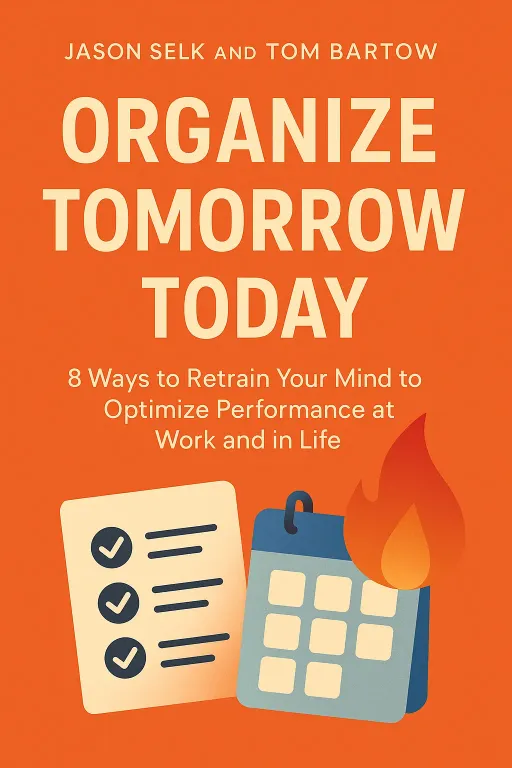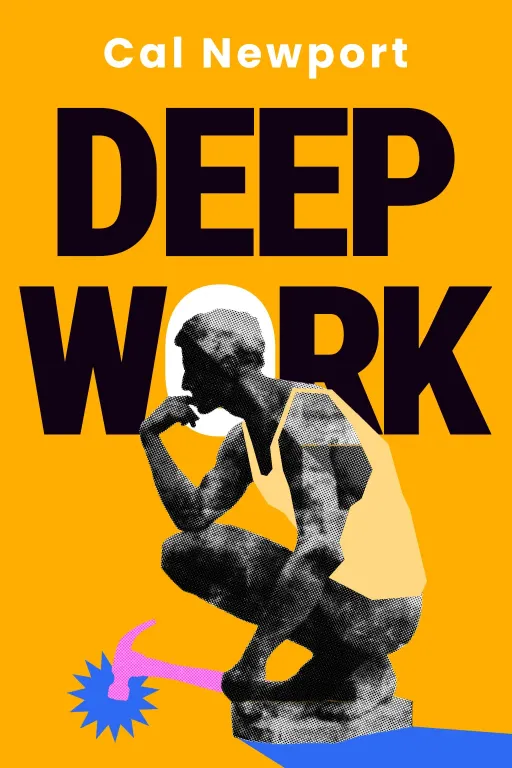
Organize Tomorrow Today
10 min8 Ways to Retrain Your Mind to Optimize Performance at Work and in Life
Introduction
Narrator: Imagine being given just ten minutes to prove your worth to a skeptical, world-class leader. That was the reality for sports psychologist Jason Selk in 2006 when he walked into the office of Tony La Russa, manager of the St. Louis Cardinals. Selk had prepared a two-hour presentation, but La Russa, surrounded by his top coaches and star players like Albert Pujols, gave him a ten-minute ultimatum. Thinking fast, Selk introduced the first step of his "Mental Workout." Intrigued, the pitching coach asked for the second. Then, All-Star Scott Rolen asked for the third. Finally, reigning Cy Young winner Chris Carpenter stood up and declared, "Everybody better pay attention. This is what we need to take it to the next level." That ten-minute audition turned into a six-season partnership that included two World Series championships. The principles that transformed the Cardinals' mental game are the same ones that can revolutionize performance in any field.
In their book, Organize Tomorrow Today: 8 Ways to Retrain Your Mind to Optimize Performance at Work and in Life, authors Jason Selk and Tom Bartow distill these high-performance strategies into a practical system. They argue that the modern world, with its constant information overload, is designed to make us fail. The key to success isn't about being busier; it's about being ruthlessly productive by focusing your mental energy where it matters most.
Escape the Busyness Trap with the "3 Most Important" Rule
Key Insight 1
Narrator: The book argues that most professionals confuse activity with accomplishment. They are caught in a reactive cycle, responding to the "noise of the urgent" rather than focusing on the truly important. This leads to days filled with tasks but little meaningful progress. The antidote is a simple yet powerful habit: Organize Tomorrow Today (OTT). This strategy involves taking a few minutes each afternoon—not at the end of the day when you're exhausted—to define your priorities for the next day.
The core of OTT is to identify your "3 Most Important" tasks and, from that list, the "1 Must" task. This forces a level of prioritization that high-achievers use instinctively. The authors tell the story of a top-ten financial advisor who, despite his immense success, felt his business was running him. When asked how often he started his day with a written, prioritized list, he realized he had abandoned the very habit that made him successful. He was busy, but not productive. By re-implementing a daily prioritization ritual, he regained control and sustained his elite performance. Writing this list down is crucial, as studies from Princeton and UCLA show that the physical act of writing stimulates the brain's reticular activating system, priming the subconscious to work on those tasks even while you sleep.
Choose Wisely by Focusing on One Step at a Time
Key Insight 2
Narrator: Our brains have a limited "channel capacity," a concept explained by Miller's Law, which states we can only hold about seven pieces of information at once. Trying to do too much—to lose forty pounds, run a marathon, and grow a business all at once—inevitably leads to burnout and failure. The authors contend that true intelligence is simplicity: choosing one thing and doing it well.
This principle is powerfully illustrated by the story of Bobby Gassoff, a college hockey player who decided to become a Navy SEAL. During the infamous "hell week," trainees face extreme physical and mental exhaustion with almost no sleep. On the third day, after watching a supremely fit teammate quit, Bobby felt himself breaking. He was overwhelmed by the thought of the remaining days of pain. In that moment, he made a critical decision: to stop thinking about the finish line and focus only on taking the next step. Then the next one. This narrow focus was the only thing that got him through. He was one of only 24 to graduate from a class of 240. This "one step" mentality is the essence of choosing wisely. It prevents overwhelm and builds the momentum needed to conquer seemingly impossible challenges.
Master Habit Formation by Winning Your "Fight-Thrus"
Key Insight 3
Narrator: The book dismisses the myth that a habit is formed in 21 days. Instead, it presents a three-phase model: the Honeymoon, the Fight-Thru, and Second Nature. The Honeymoon is the initial burst of excitement for a new routine. The real test is the Fight-Thru, the period where motivation wanes, obstacles appear, and the urge to quit is strongest. Success isn't about brilliance; it's about consistently winning these internal battles.
Joe Berger, a sales professional, is a perfect example. His performance was a stressful rollercoaster of record-setting months followed by dismal ones. After learning about the Fight-Thru concept, he stopped aiming for massive, inconsistent wins and focused on developing consistent daily habits. He learned to recognize when he was in a Fight-Thru—feeling unmotivated to make one more call or follow up on a lead—and consciously pushed through it. The result was not a sudden explosion of success, but a steady, relentless improvement. Over two years, his business grew by 40 percent, his stress plummeted, and his performance became a model of consistency. Every time you win a Fight-Thru, the authors explain, the next one becomes easier to win.
Evaluate Correctly by Focusing on Process, Not Perfection
Key Insight 4
Narrator: Many high-achievers are driven by a perfectionist mentality, which can be a powerful motivator early on. However, at elite levels, it becomes a liability. Constantly focusing on flaws erodes confidence and leads to paralysis. The solution is to shift from a "perfectionist mentality" to a "performance mentality," which means evaluating effort and process, not just results.
The book shares the story of Tom Crean, who took over a college basketball program that had 21 consecutive losing seasons. After an intense off-season of conditioning, the team started with a 1-7 record, despite being skilled and hard-working. Crean realized their problem was mental; they had a losing self-image. He implemented a new rule: after every practice, each player had to spend one minute reflecting on something they did well. This simple shift from focusing on mistakes to acknowledging small successes transformed the team's confidence. They finished the season strong, and the next year, they had their first winning season in 23 years. By focusing on the process and building confidence through positive evaluation, they changed the outcome.
Become "Abnormal" by Vaccinating Against Performance Viruses
Key Insight 5
Narrator: To achieve extraordinary results, one must be "abnormal" in their discipline and mindset. The book identifies three "performance viruses" that keep people stuck in mediocrity: The Trap of the Viable Excuse, Focusing on What You Can't Control, and Problem-Centric Thought. A viable excuse is the most dangerous because it sounds reasonable. A veteran baseball player, for instance, saw his batting average plummet because he couldn't hit breaking balls. His excuse was that he'd never been good at it. This was true, but it was also an excuse that prevented him from taking accountability and working on his weakness.
The antidote to these viruses is a "Relentless Solution Focus" (RSF). Instead of dwelling on a problem, you give yourself sixty seconds to identify one small thing you can do to improve the situation. This was the mindset of the 2011 St. Louis Cardinals in Game Six of the World Series. Down to their last strike, one out away from losing the championship, they didn't focus on the problem. Each player focused only on the solution: having a "good at-bat." This relentless focus on the immediate, controllable solution led to one of the most incredible comebacks in baseball history. They became abnormal by refusing to surrender to the problem.
Conclusion
Narrator: The single most important takeaway from Organize Tomorrow Today is that high performance is not the result of superhuman talent or working longer hours. It is the result of a disciplined, intentional process of managing your mental energy. It’s about understanding that being busy is a waste of time, but being productive—by prioritizing ruthlessly, focusing on one thing at a time, and evaluating your effort, not just your results—is the true goal.
The book leaves us with a challenging question: What viable excuses are you allowing to define your limits? By recognizing these seemingly reasonable justifications for why we can't achieve something, we can begin to dismantle them. The ultimate challenge is to adopt a Relentless Solution Focus, to stop fertilizing the weeds of our problems and instead plant the seeds of our next small, achievable step forward.









